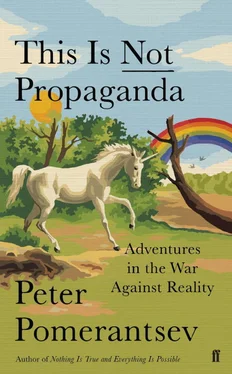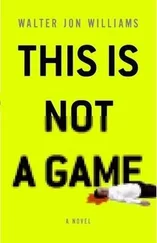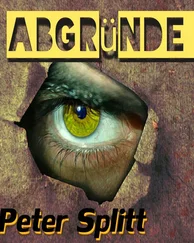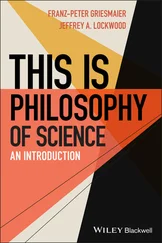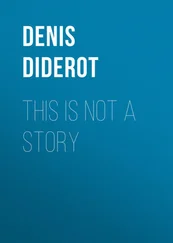Russia seemed to be a country unable to come to terms with itself since the loss of the Cold War, or with any of the traumas of the twentieth century. It was ultimately, I thought, a side-show, a curio pickled in its own agonies.
Then came the revolutionary year of 2016, and things became a touch more topsy-turvy. Suddenly the Russia I had known seemed to be all around me: a radical relativism which implies truth is unknowable, the future dissolving into nasty nostalgias, conspiracy replacing ideology, facts equating to fibs, conversation collapsing into mutual accusations that every argument is information warfare… and just this sense that everything under one’s feet is constantly moving, inherently unstable, liquid.
And not only were attitudes I had witnessed in Russia uncannily prevalent, the country was also headlining the news all the time, invading Ukraine, bombing Syria, hacking the US, buying Europe. Putin smirked at me from newsstands and from the top of the ten o’clock news. ‘You thought you could get away?’ he seemed to be saying.
Despite all my efforts to escape Russia, it had followed me. What if I had been wrong during my years there? What if Russia was not an agonised curio in a historical blind alley? What if it had been a pre-echo of what was to come in the thing once known as the West?
With these questions in mind, I found myself turning back towards Russia, to the roots of the system I saw during my own years in Moscow, and to the 1990s, when Lina was making her films there. I got back in touch with Gleb Pavlovsky. He agreed to let me interview him over the phone, and as I sat in a BBC recording studio while he explained his tactics for creating the idea of ‘the majority’, ‘the people’ in 1990s Russia, it all began to sound remarkably familiar.
‘The Communist ideocracy was sluggish, but it was an ideological entity nonetheless,’ he told me, gently advising me to ask more precise questions. ‘Even up to the end people could at least argue over the positives and negatives of Communism. Now a vacuum arose, requiring a new language. We were an absolutely blank canvas. We had, in a sense, to reinvent the principles of the political system as best as possible.’
The vision of a pretty future of ‘freedom’ had fallen apart in the devastations of the early 1990s. Instead the landscape was dotted with new micro-movements making up their own terminology as they went along: National Bolsheviks; Liberal Democrats who were actually conspiratorial nationalists; Communists who were Orthodox monarchists with social programmes. When he polled the country, Pavlovsky found Russians believed in contradictions that didn’t fit into any old conceptions of left and right. Most people believed in a strong state, if it didn’t involve itself in their personal lives. Soviet categories such as ‘workers’ and ‘intelligentsia’ were useless in elections.
Pavlovsky experimented with a different approach to assembling a winning electorate. Instead of focusing on ideological arguments, he took quite different, often conflicting social groups and began to put them together like a Russian doll. It didn’t matter what their opinions were, he just needed to gather enough of them.
‘You collect them for a short period, literally for a moment, but so that they all vote together for one person. To do this you need to build a fairy tale that will be common to all of them.’
That ‘fairy tale’ couldn’t be a political ideology: the great ideas that had powered collective notions of progress were dead. The disparate groups needed to be unified around a central emotion, a feeling powerful enough to unite all of them yet vague enough to mean anything to anyone. In 1996 the ‘fairy tale’ that Pavlovsky wrote for the campaign of the ailing, unpopular president Boris Yeltsin played on the fear that the country might collapse into civil war if he didn’t win. He cultivated the image of Yeltsin as someone so reckless and dangerous he would be prepared to plunge the country into war if he were to lose. Survival was the story, fear of losing everything the feeling.
Pavlovsky’s agency, the Fund for Effective Politics, went about smearing the opposition Communist Party in an early echo of today’s ‘fake news’ and ‘sock puppets’. Pavlovsky created posters that purported to be from the Communist Party and which claimed they would nationalise people’s homes. He filmed actors posing as Communist Party members angrily burning anti-Communist pamphlets. He hired astrologers who would go on TV and predict that electing the Communists would lead to nightmare scenarios – even war with Ukraine.
Yelstin won an unlikely victory.
Pavlovsky had conjured up a new notion of ‘the majority’, but as this was no more than an emotional trick with little political content it fell apart soon afterwards, and work immediately began on a new one. He polled incessantly, an emerging science in Russia. When it became clear that the candidate people most respected would be an ‘intelligent spy’, a Russian James Bond, the Kremlin and its oligarchs began to search for potential successors from the former KGB. They landed on Vladimir Vladimorovich Putin.
This might seem a strange place for someone like Pavlovsky to end up. He had, after all, started as a dissident. In a book of conversations with the Bulgarian political scientist Ivan Krastev, [7]Pavlovsky recounts how as a schoolkid in 1960s Odessa he was already pulling pranks by sticking sheets of paper to teachers’ backs which read, ‘I vote for John F. Kennedy’ – quite an act of anti-Soviet rebellion. As a young man he proliferated samizdat copies of Solzhenitsyn’s Gulag Archipelago. When the KGB hauled him in in 1974, Pavlovsky, to his own amazement, panicked under pressure and ended up shopping one of his acquaintances. He would later recant his testimony, which meant his friend had to serve only a small stint in a psychiatric ward rather than in prison. In the early 1980s Pavlovsky went up to Moscow, edited one of the main dissident journals, Searches, and was arrested again. This time he confessed that he was guilty of ‘slandering the Soviet Union’. Such a confession was seen as shameful in a dissident culture that prized the sovereignty of the individual in the face of state pressure above all else. After his arrest in 1982 Pavlovsky spent the years in prison and internal exile writing letters to the KGB, saying it should work with dissidents for the good of the Soviet Union. He was released in 1986. During perestroika he continued to believe that a reformed, cosmopolitan USSR was a better vehicle for progress than a potentially racist Russian nationalism. The need for a strong, centralised state became his great concern. By 1999 he was working to bring a KGB man to power.
For the 2000 presidential election the guiding ‘fairy tale’ was to pull together everyone who felt they had lost out during the Yeltsin years, the ‘left behind’, and imbue them with the sense that this was their last chance to be winners. These were completely disparate segments of society who in Soviet times would have been on different sides of the barricades – teachers and secret-service types, academics and soldiers – whom Pavlovsky would bundle together under the idea of the ‘Putin majority’. As the likes of Borwick and others would discover decades later, in an age where all the old guiding ideologies have gone, where there is no coherent competition about political ideas for the future, the aim becomes to lasso disparate groups together around a new notion of ‘the people’, bound around an amorphous but powerful emotion which everyone can interpret in their own way, and then sealed with enemies who will threaten to undermine that feeling.
Putin won the election, the candidature of someone with a security-service background made all the more prescient as the news became filled with horrifying, panic-inducing footage of Islamist terrorists from Chechnya setting off one devastating bomb after another in Russian suburban apartment blocks, with hundreds killed under the rubble.
Читать дальше
